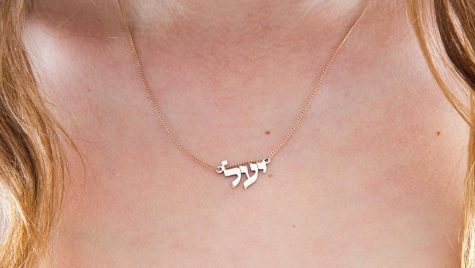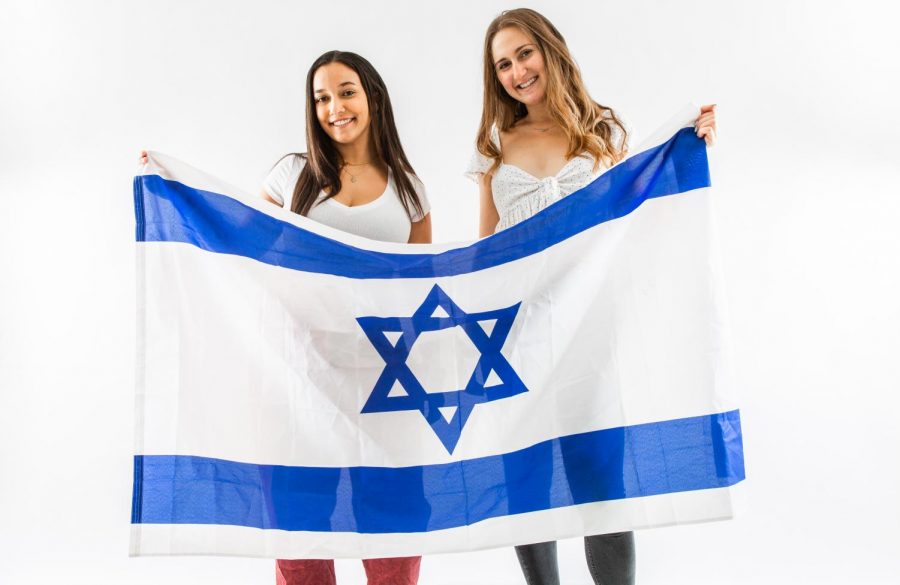Our Israel Stories
December 4, 2019
In light of the recent rise in antisemitic attacks and anti-Israel sentiments spreading across Western college campuses, and in cities in America and abroad, we want to share our personal stories explaining why we hold Israel close to our hearts.
As proud supporters of the Jewish state, we see a line between criticizing Israel’s laws or policies and placing a double standard on the nation. Critiquing Israel involves pointing out issues the government can improve, and this practice is rooted in a desire to help Israel progress as a country. Employing a double standard on Israel is holding the state to a higher standard than any other country in order to delegitimize and demonize the country. It means nit-picking information that portrays Israel in a negative light with a motive to invalidate the nation’s legitimacy and spread hatred towards the country.
Though Tulane has a high population of Jewish students, most students are not subscribed to the political atmosphere surrounding Israel. Thus, students are in a particularly sensitive position to learning about the subject and have the potential to be exposed to a variety of viewpoints. We think that it is important for students to educate themselves on all viewpoints surrounding the Arab-Israeli conflict because understanding the struggles of different points of view makes us better advocates for a future of peace.
Yael Pasumansky

I am a first generation American in my family. I grew up embracing a melting pot of cultures; I was raised in a foreign household in an American world.
I was named after my father’s grandmother, Olga Geifman, a Jewish woman who raised three children on her own during the Holocaust. She spoke German and was chosen to translate Nazi orders to a group of Jewish people when they were forced to live in an empty schoolhouse before being transported to a concentration camp. The Nazis demanded that she tell everyone they had to be escorted by a soldier to use the bathroom, yet instead she told the Jewish people to run to the forest and hide. She then ran away herself. For months, she hid in a basement in a small village in Ukraine and cared for her three young children, one of whom is my grandmother, Rozaly Pasumansky.
My parents were born in the Soviet Union and grew up under communist rule. My family was forced to suppress their Judaism while living in Russia. They secretly celebrated holidays and occasionally were able to attend small and surreptitious religious gatherings. My mother was teased and made fun of for being Jewish while growing up.
After the fall of the Soviet Union, each of my parents moved to the land of Israel, something they would have never imagined possible while growing up. My parents packed a few small bags, said goodbye to their lifelong friends, and as teenagers they left Russia. Moving to Israel was not an easy adjustment. Along with a language and cultural barrier, money was low and finding a job was difficult. However, Israel was a chance for my family to build a life free from religious oppression and full of opportunity.
I was lucky to grow up freely Jewish in America. My family celebrated high holidays and went to synagogue, yet my parents never forced Judaism on me. I discovered my passion for religion on my own; the community at my synagogue gave me a place to connect to people in a special way, and I found myself wanting to get continuously more involved and interested in learning about Judaism.
I began to understand the politics surrounding Israel towards the end of high school. I learned about the connection between my religion and Israel: that yearning for Zion, or for the land of Israel, is written in the ancient Jewish Torah. I learned that the Jewish people had been praying to return to their ancestral homeland for thousands of years. I learned that the discrimination my family endured during the Holocaust and while living in the Soviet Union contributed to the need for a Jewish nation. I learned that Israel makes mistakes and is not perfect. I learned that people living in and around Israel face a dangerous reality and experience constant fear. Mostly importantly, I learned that I must be an advocate for the Jewish nation, and that I must seek peace.
As a college student, I am perplexed by the atmosphere surrounding Israel on campus. Denying Jews a nation after the great devastation experienced by the Jewish people and by my family upsets me, however it simultaneously motivates me to share my perspective. It urges me to encourage education about the topic and it reminds me that in order to advocate for peace, we must continue learning and hearing all sides of the story.
At Tulane, the Arab-Israel conflict is a sensitive subject. Students are scared to take a position, or to talk to people who disagree with them. Many, including myself, have felt personally hurt and isolated when feeling as though our voices have not been heard.
I seek to humanize the people on all sides of the conflict, and to recognize the struggles that people have faced throughout history. There cannot be peace without discussion and education. As college students, we are in a unique position. We are the future leaders of the world and we have the power to make change. We must be open to new perspectives and growth, and we must discuss and learn from one another.
Cori Shalit

Growing up, I didn’t realize what it meant to be Jewish. I didn’t fast on Yom Kippur. I didn’t keep kosher. I grew up in Great Neck, New York, a suburb 30 minutes out of Manhattan with a significant Jewish population.
Both my parents were born in Israel, and most of my extended family lives there now. I speak Hebrew with my mother, grandparents and cousins. I have citizenship in Israel and an Israeli passport, one that bans me from 16 different countries. As a kid, we would travel to Israel every summer and whenever a school break was long enough to merit the 10-hour flight. We would most often stay in Gedera, a village in the south of Israel predominantly composed of Yemenite and Ethiopian Jews.
Mizrachi Jews are of Middle Eastern or North African descent. Since most of my family came from Yemen, we fit under this umbrella.
Following the destruction of the Jewish temple in 900 B.C.E., Jews fled all over the world. This is known as the diaspora. The Jewish community that had resided in Yemen following this expulsion from Palestine nearly 3,000 years ago was known as the lost tribe of Israel. Like Jews in other Arab countries, they experienced alternating periods of oppression consisting of pogroms and expulsions due to their religion.
My own ancestors left Yemen in 1949 during Operation Magic Carpet, the secret airlift of roughly 45,000 Yemenite Jews to Israel between 1948 and 1950. They were just a few of the 800,000 Jewish refugees immigrating to Israel from the Muslim world.
In Yemen, Jews were forced to pay expensive taxes and were banned from selling or purchasing land. Jews wishing to leave the country were told that they could not take many belongings with them and were forced to either leave or sell their items. My great-grandparents and their children had to walk for weeks to get to the Hashid transit camp in British-controlled Aden. Here, for the first time, they encountered electricity, running water, medicine and toilets. This camp was funded by the JDC, the American Jewish Joint Distribution Committee, the world’s leading Jewish humanitarian assistance organization.
Despite their determination, they were scared. Yemenite Jews, isolated from the rest of the Jewish world for so long, had developed their own customs and traditions. Most were poor, and less educated. They spoke Arabic and wore traditional clothing. Many feared the modernity of the planes. Once inside, many preferred to sit on the floor rather than on the seats. Nonetheless, they chanted blessings and burst into song once landing in Israel. They had arrived home. Now, over 750,000 Jews of Yemenite descent are living in Israel.
Before coming to college, my Israeli-American identity was unequivocally a part of me, but rarely something of which I was hyper-aware. In college, I have felt a “fight or flight” urgency in situations where people make negative comments about my Israeli ethnicity. Feeling as though my identity is attacked, I am faced with two options: do I stay silent and allow false biases to be perpetuated, or do I speak up and defend Israel but marginalize myself? The isolation I have felt from these situations, although disheartening, has allowed me to embrace my Judaism and connect with a larger Jewish community on campus.
The political atmosphere around college campuses has been fascinated with the Israeli-Palestinian conflict, but I’ve noticed that people don’t want to have more difficult conversations on the subject matter. It’s easy to scapegoat the only Jewish state, but we have to acknowledge things people don’t want to talk about. Generally speaking, college students don’t know as much as they think they do about the conflict. It’s easy to support a boycott of a country, but it’s harder to take the dangerous repercussions into account.
I feel as though coexistence is possible. I see it in the newest generation of Israelis. I see it in my cousins who are raised by my Jewish aunt and Muslim uncle. I wish everyone could see the situation without the interference of an inherently biased media – go to Israel for themselves and meet real people whose lives are unequivocally shaped by the situation every day. If education is the road to peace, we all must work to educate ourselves on different sides, but the more one side is demonized and the more narratives are misconstrued, the further we stray from a peaceful future.










namoosh:) • Dec 6, 2019 at 9:53 pm
Coco my great love!!!
you actually brought me into tears of pride and joy!!!
you wrote so accurate and beautifully , i am so so so proud of you!!!
please, invite every friend or מתנגד of Israel to visit our home. i’m sure they will get a new positive view on the situation ❤️